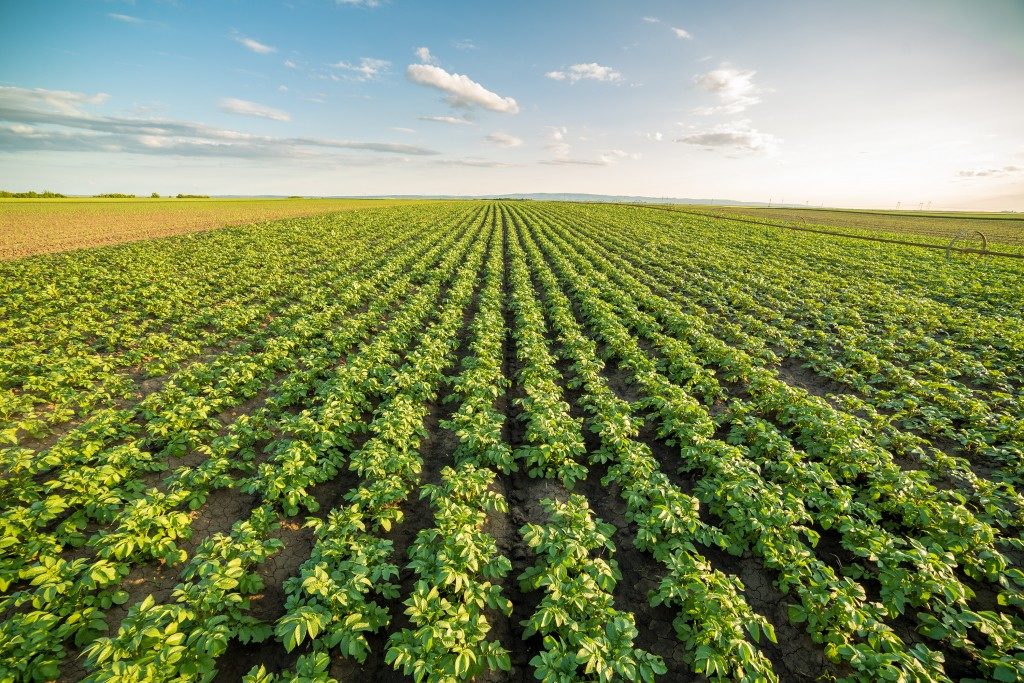In recent years, weather patterns and climate trends have become increasingly unpredictable. Heavy rains and extended droughts pose problems to farmers. Investing in the appropriate irrigation system can mitigate the adverse effects of these conditions and benefit your entire community. Know your local water supply and conditions, manage and meter your water flow, and conserve your usage to be sustainable.
Climate disruption
According to a 2014 National Climate Assessment report, agricultural disruptions due to climate change have increased in the past 40 years – and this trend will only continue to escalate. Some regions of the US will be more resilient, others more vulnerable. Your farm may be enjoying favorable weather now, but those patterns cannot be guaranteed over the years to come.
When weather conditions create extremes of heat and drought, some crops and livestock cannot survive. In times of excessive rain, the soil is eroded. The overall stress brought about by these fluctuations is also conducive to the spread of disease, vermin, and weeds.
The most recent statistics from the Farm and Ranch Irrigation Survey indicate that irrigated farms comprise only 14% of farms in the US while generating around 39% of sales. Irrigated farms could average over four times the sales for dry land farms.
Considerations and costs
Agricultural irrigation accounts for nearly 80% of water consumption on the national level. There is a growing pressure from agricultural policy-makers, the market and other consumers, for farms to implement more efficient systems of water usage.
Unfortunately, efficient irrigation systems are unevenly implemented across the country. As of 2013, the Southern Plains region alone accounted for 87% of total area using efficient irrigation.
Scale is a further deterrent to implementing efficient irrigation. Larger farms can spread costs over more acres and thus have a greater incentive to install and profit from efficient systems. Nevertheless, small-scale farms made up over 60% of the total number of irrigated farms in the latest survey.
Long term, big picture
Clearly, a number of small-scale farmers have decided that the upfront cost of implementing an efficient irrigation system is worth it over the long term. You can factor these considerations into your own operations.
The big picture is changing. With the unfavorable projections of the impact of climate on agriculture over the next 25 years, all farmers, regardless of location or scale, may have to deal with a more costly and unreliable groundwater supply.
Operating off inefficient irrigation could lead to a net loss in the long term, or restrict you to growing only low-value crops. It also limits your overall productivity and sales. Perhaps most importantly, though, as a consumer of water, it is in everyone’s best interest to be as efficient as possible.
What you can do

As a farmer, you’re a businessman – and wise businessmen do their research. Measures of annual rainfall, available surface and groundwater resources, and community consumption or demand for water should all be considered. Ultimately, the consistency of available water will determine the type of crops you can sustainably grow – which will yield long term profitability.
Agricultural experts and policymakers also evaluate and publish lists of the best management practices (BMPs) when it comes to water management. Following certain types of practices can also make you eligible for funding from the National Resources Conservation Service.
Work out your chosen irrigation system by determining factors such as the distance and fluctuation of water supply, means of transport and distribution, and drainage and conservation of runoff. Monitor your water consumption and maintain the system periodically. It will be a considerable investment, but one that ultimately pays off with long-term sustainability.



